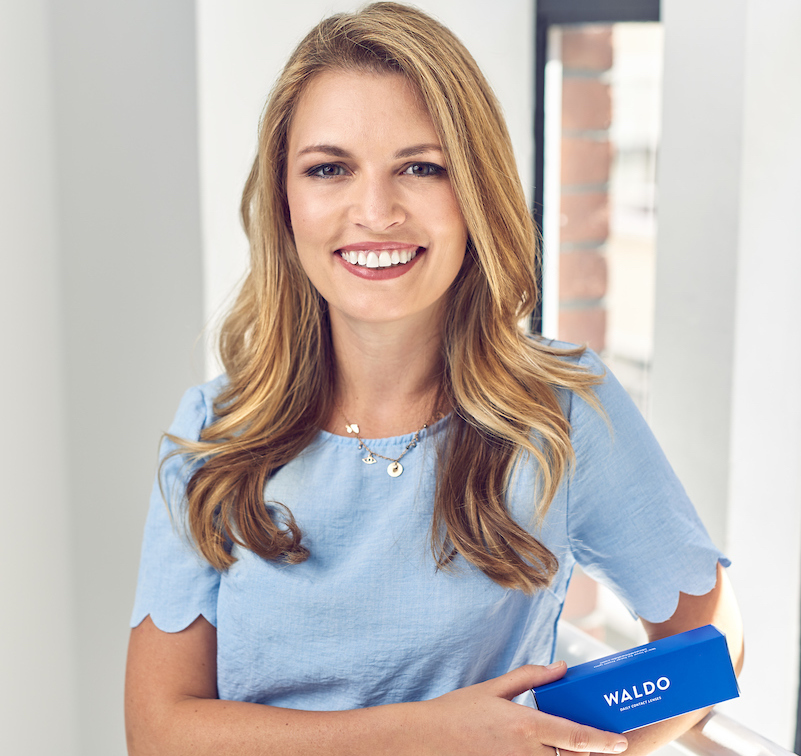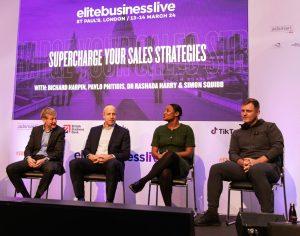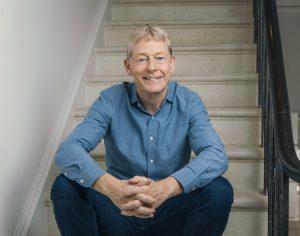Richard Branson, Bill Gates and Mark Zuckerberg are just some of the individuals who dropped out of education to become successful entrepreneurs. Despite that demonstrable route to glory though, Ashleigh Hinde, the founder of Waldo, the contact lens delivery startup, took no chances. Possessing a seemingly insatiable appetite for learning, Hinde has ticked off study on everything from social science and psychology to media and finance. “I’ve always been really interested in organisational and people behaviour, which was the reason for studying law and psychology,” she says. “And I’ve always been interested in how media affects people and society as a whole.” This thirst for knowledge about why people do what they do eventually led to her completing both a post-graduate in marketing as well as a masters in finance, the latter of which was at Harvard University. On her various degrees, Hinde casually adds: “I guess my study has evolved with my interests.”
While many parents often try steering their children towards education, business ownership was actually the beaten path in Hinde’s home. “I come from a family of entrepreneurs,” she reveals. “Prior to me starting Waldo I was the only person in my family that didn’t have my own company, so it was quite normal from a family perspective.” She spent a few years working in her native South Africa for M&S-esque retailer Truworths, the FMCG arena and London’s corporate sector, which is where she got a taste of the tech scene. However, it was when Hinde worked for Yard Ventures, the Harvard alumni VC fund, alongside study that her entrepreneurial spark ignited.
The scholar was burning the midnight oil on an assignment, which centred around the rise of subscription models, hot off the heels of Unilever’s $1bn takeover of Dollar Shave Club in July 2016. “The idea for Waldo came along when it was 3am,” Hinde says, realising with tired eyes she only had one pair of contacts left. “I went online to see how I could buy contacts in the States and saw they were super-expensive.” She suddenly found herself questioning a product she’d worn for almost 20 years. Questions such as “why is the packaging so terrible?” and “why is the pricing so different if I buy it from my optician to online?” raced through her mind. “I started to question all of the inconsistencies about the product that I was so reliant on,” she says.
With access to all the research she could possibly need, Hinde drilled into this newly unearthed issue to get to the core of it. Seemingly big pharmaceuticals had dominated the market for decades with virtually no creativity, consumer focus or change. While the idea came from a personal situation, she believed it could solve a real problem. “I didn’t start Waldo because I wanted to start a business, I started Waldo because I thought there was a need for the product,” she says. “I don’t think becoming an entrepreneur because you want to have your own business is necessarily enough of a reason to take the plunge.”

Having worn contact lenses for two decades, Hinde always had a close relationship with her family optician. This was also linked to the fact her mother is blind in one eye. “She wears tailor-made hard contact lenses, so the optician has played a super-important role in our family for that reason,” she details. “When I started to look into the industry, it was really about interviewing industry experts, getting to know them and learning more about the detail of the actual lenses.”
In the same way Hinde questioned why the market was so stagnant and expensive, she also began to quiz herself over if she could solve the issue alone. “As I started to dig into it, I was like ‘oh my God, this problem is huge’ and found these [large pharmaceutical] companies were ripping off consumers for ages,” she says. Determined, Hinde pushed on and explored the supply chain. Her tenacity paid off when she found a partner that bought into her concept just ten months from the initial 3am brainwave. This would see Waldo deliver a more agile and user-friendly service for lenses, executing regular deliveries and a fair-priced pay-as-you-go approach without users jumping through hoops.
Refusing to associate her brand with sub-par goods that would swindle consumers, Hinde knew what she desired. “It was about making sure we had suppliers able to make contact lenses of a quality akin to that of Johnson & Johnson or CooperVision,” she explains. With the big firms effectively commanding the supply chain and doubt cast over Waldo for its then-small size, she concedes: “Getting access to a high-quality supplier isn’t that easy. That was the biggest challenge in terms of setting up.”
Possessing a London network from her time in the corporate sector, Hinde returned to the Big Smoke believing it was the most logical place for her to open shop. “Your network is super-important when you’re setting up,” she stresses. “More than that, I think London is a great testing ground. It’s a very difficult market to crack as a consumer business – prices are very low and the retail industry is super-competitive.”
Waldo’s doors officially opened in August 2017. By then it had secured a seed investment round of £1.3m while another £700,000 followed in launch month, both of which came from YYX Capital, the Knightsbridge-based VC firm. With the website live, complemented by some light PR and digital advertising, it didn’t take long to get noticed. “It was such a new concept and never done before in the UK, so I think we were lucky from the perspective that the brand really stood out,” says Hinde.

“Stood out” is putting it mildly. While a rough target of 10,000 customers for early 2018 was loosely put in place, that milestone was reached in December 2017. “I think, being an entrepreneur, things are moving so quickly that you seldom take a step back to reflect on how far you’ve come,” Hinde opines. Having now had time for it all to sink in, she continues: “In the moment I didn’t think much of it you know, it was day-to-day. But then you take a step back and you’re like ‘oh my God – we’ve done it, we hit 10,000 orders in the space of four months.’ That was amazing for us.”
From that point Hinde didn’t decide to let Waldo get some shut-eye, no, the momentum had to be capitalised on as 2018 kicked off. Having picked her own brains before the business launched, she applied the same strategy for scaling. Revealing the questions she asked herself, Hinde recalls: “How do we make this better? How do we make it more efficient? How do we make our product more compelling for customers?” One such innovation was the launch of vitamin contact lenses – “the first of their kind,” according to Hinde. They come in a patented solution with vitamins B6, B12 and E, which is designed to provide more oxygen to the eyes resulting in added comfort and less dryness. “We’ve had great customer feedback on that,” she reveals, with the Waldo website showcasing plenty of five-star reviews.
Expansion complemented innovation as Waldo entered Europe in June to get a sense of where the brand could gain the most traction before venturing into new specific markets. Then in August, the US became the startup’s first stop outside the continent. “The US is a massive market,” Hinde explains. “The customer doesn’t have as many affordable options as Europe and the UK.” While the same business model is in place, there are key differences across the regions, such as Americans being more accustomed to buying in bulk and various languages to adapt to across Europe. “Sometimes people lump Europe together into this bucket but that’s not the case at all – each individual market has its own nuances, which I think makes it very unique to anywhere else in the world,” Hinde notes.
Building on the seed funding, growth was financially supported in the midst of the overseas crusades as Waldo sealed a £3.7m series A investment in July. It gave the business the approval of not just VCs but startup royalty as Tinder founders Sean Rad and Justin Mateen joined the round. “It’s a bit of firepower behind what we’re already doing,” says Hinde of the injection, which is supporting marketing and service delivery.
With such growth in a short space of time, it’s perhaps unsurprising the big firms are paying close attention to Waldo. “The likes of Vision Direct etcetera, they’re not just going to sit down and let us eat their breakfast,” Hinde laughs. “We’ve seen the incumbents react.” Noting that Waldo is a brand and service in itself rather than a company selling miscellaneous goods, she claims they’re cutting through online noise. “They’re not able to emulate [us], they’re much further away from the product and customer than we are,” she argues. “I think digital is getting more cluttered, so it’s super-important for brands to find their voice in that space.”
So how does the future look for Waldo? “We might be a startup in terms of how long we’ve been around but the technology and manpower we’ve got behind the production of our product, that’s in the league of the big pharmaceutical players,” she concludes. “My big ambition for the company is to change the way people feel about eyecare globally and I would like to see our brand touching as many customers as we can.” ![]()
Share via:


















































